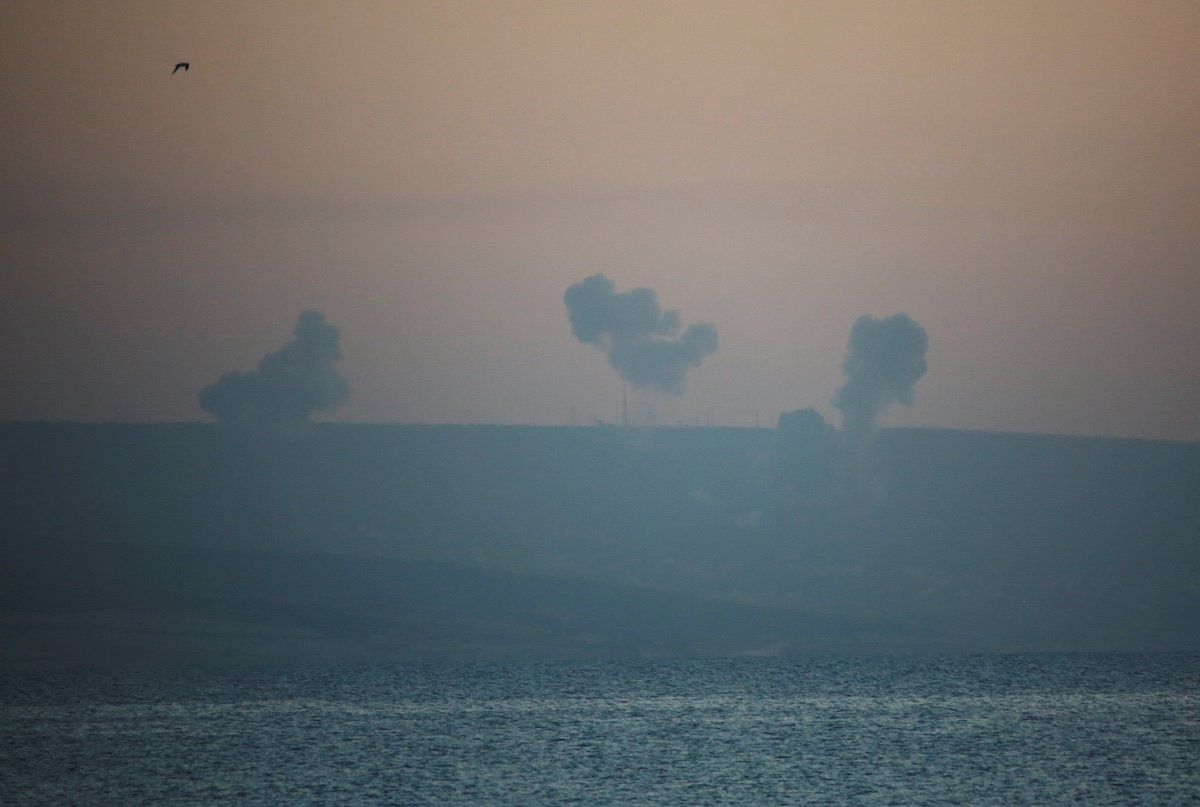As Israel appears to be routing Hamas in Gaza, we’re watching whether it will open a second front against another long-standing enemy, Hezbollah. Some observers say that such a fight is a foregone conclusion.
Some 60,000 residents of communities on the border with Lebanon have been evacuated and will not return amid continued clashes between Hezbollah fighters and the Israeli Defence Force.
Those skirmishes escalated over the weekend as Hezbollah launched explosive drones and missiles at Israeli positions, and Israel sent air strikes into towns and villages in south Lebanon. On Friday, Israeli President Benjamin Netanyahu warned, “If Hezbollah chooses to start an all-out war then it will, by its own hand, turn Beirut and southern Lebanon, not far from here, into Gaza and Khan Younis.”
Attacking Hezbollah would not only crush a long-standing adversary of the Jewish state, but it would also potentially rehabilitate Netanyahu’s political fortunes, which have plummeted amid the current conflict. At the very least, it would prolong his time in office, as there is little appetite for elections while the nation is at war.
Israel’s National Security Adviser Tzachi Hanegbi told Israeli television that his country may have no other choice but to preempt an attack by Hezbollah in the north similar to that perpetrated by Hamas in the south on Oct. 7.
Attacking Hezbollah, however, also risks expanding the number of enemies engaged in active conflict. While Syria has been offering limited support to Hamas to date, it acts as a regular conduit for military support to Hezbollah. There is speculation that Iranian-backed groups in Iraq are also preparing for conflict; since Oct. 17, Iraqi groups have launched over 82 drone and rocket attacks against US military installations in Iraq and Syria, wounding 66 American service personnel. Meanwhile, Iran is already using Yemeni Houthis as proxies against Israel, in addition to backing Hezbollah in a larger war.
